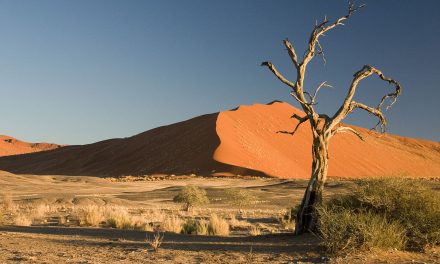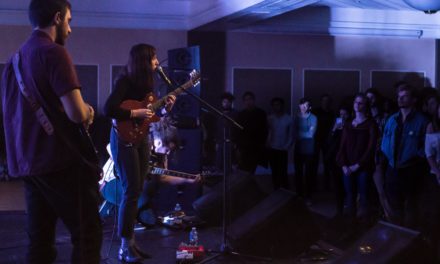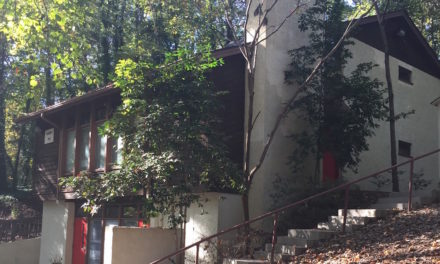April is Sexual Assault Awareness Month (SAAM) in the United States, which aims to raise awareness about sexual violence nationwide and to educate communities on methods of prevention. Emory is participating in the observation of SAAM by hosting Sexual Assault Awareness Week (SAAW), which began on Monday and will conclude today. Campus organizations scheduled an array of activities and events, such as films, discussion and jewelry making, to educate the campus community.
The topic of sexual violence has become extremely prevalent on American college campuses since the rise in numbers of reported sexual assault cases in the last decade, with some controversial statistics reporting rates of as many as 1 in 5 women having been victims of sexual assault on American college campuses. As a response to sexual violence on American campuses, President Obama created the White House Task Force to Protect Students From Sexual Assault in April 2014, and many proposals to combat sexual violence on campuses are undergoing Congressional consideration.
However, SAAM education, empowerment and awareness objectives extend beyond the scope of females on college campuses to include men and women alike in their professional, social, personal and academic lives. Emory is seeking to reflect this universality as well during its SAAW.
“It’s important to remember that, though our age group has the highest rate of sexual assault,” College sophomore and Sexual Assault Peer Advocate (SAPA) member Emma Buckland-Young said. “It’s actually more prevalent for youths who do not attend college than for those who do. And out there, beyond our campus, there are fewer resources.”
Buckland-Young hopes SAAW will inspire students to effect change in their own communities.
“Our efforts cannot stop here,” she said. “I hope this month inspires and encourages everyone to get involved in their own hometowns — volunteer at a domestic abuse shelter, start a support system, reach out to friends. There are more people in need of help than we can even imagine.”
Each day during the week (except on Wednesday), students have been making teal bracelets at the TEALSTRONG Table – teal is the official color of sexual assault awareness — in the Coke Commons from 10 a.m. to 1 p.m. to promote Sexual Assault Awareness at Emory.
Another event on campus this week was TEDxEmory’s “The Talk” with the Kappa Sigma fraternity, held on Monday in the Winship Ballroom. Students gathered to discuss themes revolving around sex and intimate interactions such as misconceptions about sex and consent. The event was intended to appeal to the Emory community as an discussion created by students for students, including topics such as “Sexy-time and Relationships and Whatnot.” The idea was to promote healthy and safe discussions surrounding sex in a comfortable environment.
In addition to tables at Wonderful Wednesday for the promotion of SAAM, Terrific Tuesday was held on Asbury Circle to celebrate the work done by groups such as SAPA and Alliance for Sexual Assault Prevention (ASAP), that aim to bring an end to sexual misconduct on Emory’s campus.
The incoming co-president of SAPA, College junior Amina Khan, spoke about the role of these organizations in a context beyond SAAM.
“For SAPA and other advocacy groups on campus, every week is dedicated sexual assault awareness,” Khan said, “but we hope that this year’s events provide commentary on sexual assault as an issue both on Emory’s campus and beyond it. Along with providing education and awareness, we hope that this year’s events will diversify the dialogue around sexual assault and emphasize the importance of advocacy for students.”
An additional collaboration of organizations for SAAM at Emory included that of Volunteer Emory, Delta Phi Epsilon sorority, Lambda Theta Alpha sorority, and Young Democrats of Emory to present “Title IX: Ask Me Anything,” a talk about the sexual misconduct process with Senior Associate Vice President and Title IX Coordinator for Students Carolyn Livingston.
Title IX, a federal law, requires colleges and universities in the United States to address and respond to cases of sexual misconduct. The idea behind the event was that, while many are aware of the policy itself, few understand its function and how to navigate it. Students were able to submit questions anonymously before the meeting or to ask follow-ups in person at the event.
College sophomore and SAPA peer facilitator Monica Riefkohl shared her thoughts on what the Emory community will take away from this week and the remaining events throughout the month.
“I’m hoping that SAAW will give the community a new understanding of the prevalence of this issue and also encourage everyone at Emory to work together to prevent the problem of sexual assault in the first place,” Riefkohl said. “I’m hoping that SAAW will cause a long lasting impression in our population. Sexual assault is a community problem that can only be solved if every person makes a pledge to not tolerate or encourage any sort of nonconsensual acts and instead practice and thrive in consent culture which simply includes communication.”
Greek life on American campuses has often been associated with sexual misconduct. One of the goals during this SAAW was to incorporate Greek organizations into its activities, and to show that they are not an enemy, but rather a supporter of such an essential cause.
Riefkohl, a member of the Delta Phi Epsilon sorority, felt that including students in the Greek system is an essential part of the solution.
“It’s important for others to know that Greek life and consent culture can go hand in hand,” she said.
One of the biggest events happening during SAAW is “RespectCon 2015: Understanding Sexual Violence Through A Social Justice Lens,” a one-day conference that takes place today (Friday, April 10), where the Emory community will come together with professionals, including sexual assault advocates and prevention educators, to share ideas and programs focusing on the understanding of sexual violence through the lens of social justice. RespectCon will be open to students as well as educators to encourage collaboration and discussion on sexual violence prevention and survivor support throughout the hierarchy of Emory’s campus.
Riefkohl attended RespectCon in the spring of 2014 and described it as “a phenomenal event that brought together several disciplines of life, all passionate about working towards a solution which is a powerful environment to learn in.”
The advocacy doesn’t stop here; Emory will continue to promote awareness and education on the sexual violence during the entire month of April.
The SAAM Documentary Series, a series of films to be screened at different locations on campus, will happen throughout the month. The films will revolve around different themes and topics on sexual violence from a variety of contexts, including the familiar college campus environment and the U.S. Military.
SAAM will conclude on April 22 at Emory with Emory Denim Day, a fundraiser and international day of awareness about sexual violence. On this day, students, staff and faculty will be asked to wear denim and take a picture of themselves to be shared with the Respect Program, using the hashtag “#EmoryDenimDay.” For every picture received, the Student Government Association will donate $1 to the Respect Program.
Buckland-Young thinks that the events during SAAM will create a more survivor-supportive campus.
“I hope this is a reminder to survivors that they are not alone,” she said. “It has been a success if just one person, afraid to speak, takes this week and realizes that they don’t have to bear their burden in silence. We want to help carry it. There are so many people who care about them, fight for them, love them, celebrate them.”
The Emory Wheel was founded in 1919 and is currently the only independent, student-run newspaper of Emory University. The Wheel publishes weekly on Wednesdays during the academic year, except during University holidays and scheduled publication intermissions.
The Wheel is financially and editorially independent from the University. All of its content is generated by the Wheel’s more than 100 student staff members and contributing writers, and its printing costs are covered by profits from self-generated advertising sales.





